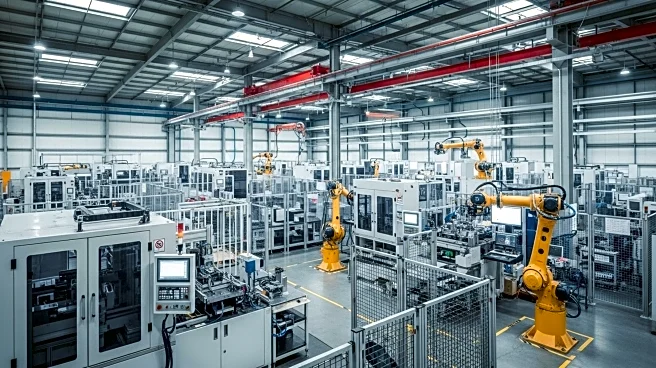What is the story about?
What's Happening?
Linamar Corp., a Canadian manufacturing company, has announced a $300 million deal to expand its U.S. manufacturing footprint. The investment will focus on the production of e-axles and the development of new semiconductor packaging methods for electric vehicle (EV) batteries. This strategic move is part of Linamar's efforts to enhance its capabilities in the growing EV market. The expansion is expected to bolster Linamar's presence in the U.S. automotive industry, providing advanced manufacturing solutions and supporting the transition to electric mobility.
Why It's Important?
Linamar's expansion into the U.S. market is a significant development for the automotive industry, particularly in the context of the increasing demand for electric vehicles. By investing in e-axle production and semiconductor packaging, Linamar is positioning itself as a key player in the EV supply chain. This move could lead to increased competition and innovation in the sector, benefiting consumers and manufacturers alike. The investment also reflects broader trends in the industry towards sustainability and technological advancement, with potential implications for job creation and economic growth in the regions where Linamar operates.
What's Next?
As Linamar integrates its new assets, the company will likely focus on scaling up production and optimizing its manufacturing processes. The expansion may prompt other automotive companies to invest in similar technologies to remain competitive in the EV market. Industry stakeholders, including suppliers and policymakers, will be watching closely to assess the impact of Linamar's investment on the U.S. automotive landscape. The company's efforts could also influence regulatory discussions around EV infrastructure and support for sustainable transportation solutions.
Beyond the Headlines
Linamar's expansion highlights the intersection of technology and sustainability in the automotive industry. The focus on semiconductor packaging for EV batteries underscores the importance of innovation in addressing environmental challenges. This development may lead to broader conversations about the role of manufacturing in achieving climate goals and the need for collaboration between industry and government to support green initiatives. The long-term implications could include shifts in consumer preferences and policy frameworks that prioritize sustainable mobility.
















